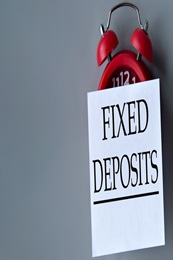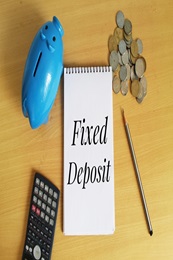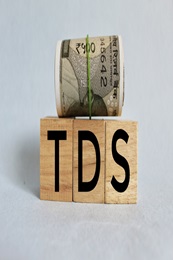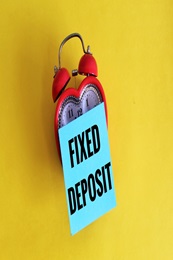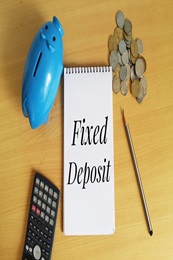The Role of Fixed Deposits in Corporate Financial Planning
April 15, 2025

When it comes to corporate financial planning, one key aspect that businesses and organisations need to consider is how to maximise their returns on surplus funds. While there are various investment options available, fixed deposits (FDs) are often a popular choice due to their guaranteed returns and flexibility.
In this article, we will delve into the key features of fixed deposits in corporate financial planning and explore how businesses can effectively incorporate fixed deposits into their financial strategies.
Key Features of Corporate Fixed Deposits
Corporate fixed deposits have several distinct features that set them apart from traditional fixed deposits. Let's take a closer look at these features:
- Higher Interest Rates: Corporate FDs generally offer higher interest rates compared to traditional fixed deposits. This allows businesses to earn greater returns on their business investment.
- Flexible Tenures: Unlike traditional fixed deposits, corporate deposits offer flexible tenure options ranging from a few months to several years. Businesses can choose a tenure that aligns with their specific financial goals and investment strategies.
- Regular Income: Corporate FDs provide periodic payouts of interest, offering businesses a regular income stream. These payouts can be monthly, quarterly, half-yearly, or annually.
- Capital Safety: Corporate deposits offer guaranteed returns of both principal and interest. This ensures that businesses can protect their capital while earning stable returns.
- Liquidity: In certain cases, businesses can make premature withdrawals from their corporate FDs, albeit with a penalty. Additionally, these deposits can be used as collateral to obtain loans.
Incorporating Fixed Deposits into Corporate Financial Planning
Let’s explore how businesses can effectively incorporate fixed deposits into their financial planning strategies and develop a robust corporate FD strategy.
- Assessing Financial Goals: Before investing in fixed deposits, businesses should assess their financial goals and determine the amount of surplus funds available for investment. This evaluation will help them determine the appropriate investment amount and tenure for their FDs.
- Diversification: While fixed deposits offer stability and guaranteed returns, businesses should also consider diversifying their investment portfolio to mitigate risk. By allocating funds to different asset classes such as equities, bonds, and mutual funds, businesses can achieve a balanced approach to financial planning.
- Tax Considerations: Businesses should also consider the tax implications of investing in fixed deposits. The interest earned on corporate FDs is fully taxable as per the investor's tax slab. It is crucial to account for these taxes while calculating the overall returns.
- Reviewing and Renewing: As with any investment, it is essential for businesses to review their fixed deposits periodically and renew them if required. This allows them to take advantage of better interest rates or explore other investment options that may align with their changing financial goals.
Example Scenarios
To illustrate the role of fixed deposits in corporate financial planning, let's consider a few hypothetical scenarios:
Scenario 1: Cash Flow Management
A manufacturing company receives a large order and needs to purchase raw materials to fulfil it. However, the payment from the client will be received only after three months. To bridge this cash flow gap, the company can invest its surplus funds in a corporate fixed deposit for three months. The interest earned during this period can help cover the expenses related to raw material procurement.
Scenario 2: Capital Preservation
A startup has recently secured funding and wants to preserve its capital while earning stable returns. The business decides to invest a portion of its surplus funds in corporate fixed deposits with a higher interest rate compared to regular savings accounts. This ensures that the startup can generate additional income without taking on unnecessary risks.
Final Thoughts
Fixed deposits play a crucial role in corporate financial planning by offering higher returns, flexible tenures, regular income, capital safety, and liquidity. Incorporating corporate FDs into financial planning strategies can help businesses achieve their short-term and long-term goals while preserving capital and ensuring stable returns.
Looking to grow your savings faster? Ujjivan SFB offers a wide range of fixed deposit products. Select the FD of your choice and take a step forward to your financial goals. Alternatively, you can browse through Ujjivan SFB product suite - our wide range of financial products are designed to make your financial life better.
FAQs
1. How often can I receive interest payouts from a corporate fixed deposit?
Interest payouts can be received monthly, quarterly, half-yearly, or annually depending on the terms chosen at the time of investment.
2. Can I nominate someone for my corporate fixed deposit?
Yes, you can nominate someone to receive the maturity amount in case of your demise.
3. Can I renew my corporate fixed deposit automatically?
Renewal options vary across banks, so it is important to check the terms and conditions at the time of investment.
4. Are corporate fixed deposits taxable?
Yes, the interest earned from corporate fixed deposits is fully taxable as per the investor's tax slab.
5. Can I take a loan against my corporate fixed deposit?
Yes, you can use your corporate FD as collateral to obtain loans from banks.
6. How can I keep track of my corporate fixed deposits?
Most banks provide investors with online portals or access to their customer service helpline to keep track of their fixed deposits' status and maturity dates.
7. Is there a penalty for breaking a corporate fixed deposit before maturity?
If allowed by the terms and conditions of the deposit, breaking a corporate fixed deposit before maturity may attract penalties such as a reduction in interest rate or loss of interest.
8. Are corporate fixed deposit rates higher than traditional FD rates?
Yes, corporate fixed deposit rates are generally higher than traditional fixed deposit rates, offering businesses the opportunity to earn higher returns on their investments.
9. Can HUFs invest in corporate fixed deposits?
Yes, Hindu Undivided Families (HUFs) are permitted to invest in corporate fixed deposits along with other eligible investors.
10. What is the minimum investment amount for a corporate fixed deposit?
The minimum investment amount for a corporate fixed deposit varies across banks.
Latest Blogs

Telangana Housing Board & KPHB Colony: A Guide to Affordable Urban Housing in Hyderabad
March 14, 2025
As Telangana continues its rapid urbanisation journey, two key housing entities—Telangana Housing Board (THB) and Kukatpally Housing Board Colony (KPHB)—have played critical roles in shaping the state's real estate ecosystem.

Does Checking CIBIL Score Frequently Lower Your Credit Points?
April 07, 2025
Imagine you're planning to apply for a home loan, a credit card, or even a car loan. Naturally, you want to ensure your CIBIL score is in good shape before proceeding.

Explained: Can NRIs Buy an Agricultural Land in India?
April 03, 2025
Real estate investment is often a top priority for Non-Resident Indians (NRIs) looking to retain strong financial ties to India.

How to Improve Your CIBIL Score from 600 to 750: A Step-by-Step Guide
April 02, 2025
Your CIBIL score is like your financial reputation—banks check it before approving loans or credit cards. If your score is hovering around 600, you might face difficulties in securing credit or may get loans with higher interest rates.

What Happens When You Leave Your Savings Account Unused?
April 01, 2025
Imagine waking up one day to find that your hard-earned money is locked away and inaccessible. Sounds stressful, right? This is precisely what happens when you leave your Savings Account inactive for too long.

